Results indicated that not only can dogs detect Covid faster, but they can also do so in a non-intrusive manner – so no need to swab your throat or nose

Dogs can detect Covid-19 faster and more accurately than a PCR test, a new study shows.
Researchers looked at the ability of canines to recognise the virus and its variants, even when they are obscured by other viruses, like those from common colds and flu.
More than 400 scientists from over 30 countries contributed to the study as well as 147 scent dogs, according to the findings published in the Journal of Osteopathic Medicine.
After analysing many studies covering both field and clinical experiments, Professor Dickey and Junqueira found that dogs who are trained to sniff out scents are “as effective and often more effective” than antigen tests.
A total of 53 dogs were trained to sniff out Covid scents, while 37 were not and scientists found that the dogs that were not trained were in some cases “slightly superior” to those that were pre-trained.
“The previously untrained dogs have the advantage that they are not as prone to indicating on scents other than the Covid–19 associated scent,” the paper said.
The results indicated that not only can dogs detect Covid faster, but they can also do so in a non-intrusive manner. This means you won’t need to put a swab in your throat or nose.
How can dogs detect the virus?
This essentially comes down to the dog’s highly evolved nose with its ability to sense out smells quicker.
Dogs possess up to 300 million olfactory receptors in their noses, compared to about six million in humans. And the part of a dog’s brain that is devoted to analysing smells is about “40 times greater” than humans. Canines also have ‘neophilia’, which means they are attracted to new and interesting odours
And so, with all these enhancements, dogs can detect very low concentrations of odours associated with Covid infections.
“They can detect the equivalent of one drop of an odorous substance in 10.5 Olympic-sized swimming pools,” Professor Dickey said. “For perspective, this is about three orders of magnitude better than with scientific instrumentation.”
Scientists also found that in some cases, the animals were also able to detect the virus in pre-symptomatic and asymptomatic patients, “whose viral load was too low for conventional tests to work.”
Professor Dickey has said that dogs can also differentiate Covid and its different variants in the presence of other respiratory viruses. This included the common cold or flu.
“They’re much more effective. In fact, one of the authors that we quote in the paper commented that the RT-PCR test is not the gold standard anymore. It’s the dog. And they’re so quick,” he added. “They can give you the yes or no within seconds if they’re directly smelling you.”

How was the study conducted to see if dogs can really detect Covid-19?
In some studies, the dogs gave a person a quick sniff, sitting down to see if the person has Covid. In another study, the dog was given a sweat sample to smell for a few minutes.
The press release has said that scent dogs, such as beagles, basset hounds and coonhounds are the ideal candidates for sniffing out the virus, given their “natural tendencies to rely on odours to relate to the world.”
But the studies which the researchers analysed showed a variety of dogs were up for the challenge and were able to sniff out the Covid odour. With a few weeks of training, puppies, older dogs, purebred and mixed breeds, both male and female were able to sniff such odours out and “all performed admirably,” the Eureka Alert press release said.
Although there has been success with dogs detecting such viruses, researchers believe there are still many challenges with using dogs for medical diagnoses.
“There’s quite a bit of research, but it’s still considered by many as a kind of a curiosity,” said Professor Dickey.
In conclusion, Professor Dickey and Junqueira said after reviewing the studies, believe that scent dogs deserve “their place as a serious diagnostic methodology that could be particularly useful during future pandemics, potentially as part of rapid routine health screenings in public spaces.”
“Perhaps, most importantly, we argue that the impressive international quality and quantity of COVID scent dog research described in our paper for the first time, demonstrates that medical scent dogs are finally ready for a host of mainstream medical applications,” they added.
Canine Companions: Dogs as Heartwarming Friends with Unparalleled Love and Compassion

Meet Kylo, the rescue dog who’s overflowing with gratitude for his second chance at life. Saved from a shelter, Kylo’s heartwarming desire is to snuggle and embrace his human mom the moment she steps into their home.
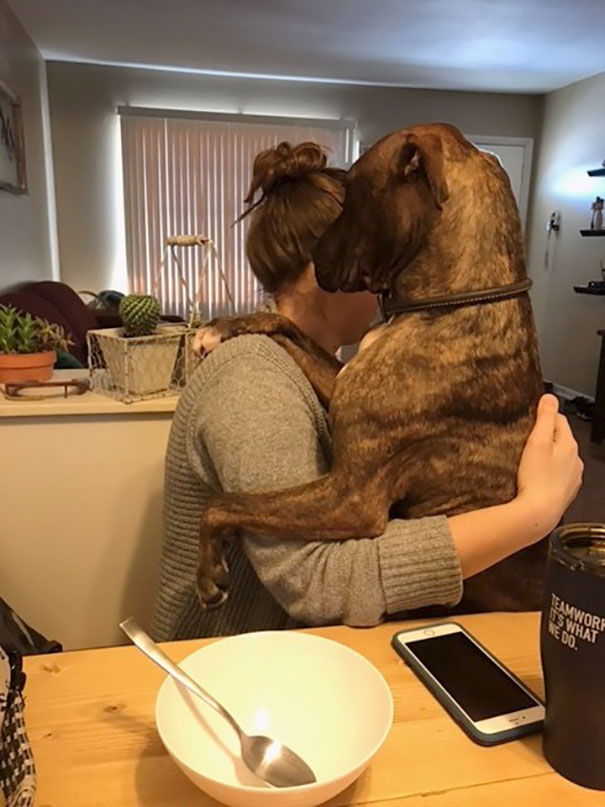
Meghan Sweers, Kylo’s new owner, shares their heartwarming story. “As soon as I sit down to remove my shoes, he eagerly climbs into my lap, seeking comfort,” Meghan says. “If I delay our cuddle time, he follows me around, wearing the most soulful, pleading expression until I finally give in and hold him.”

But life wasn’t always this perfect for Kylo. When he was just 10 months old, he found himself surrendered to a shelter. After a period in a foster home with no one showing interest in the goofy dog, fate smiled upon Kylo when Sweers and her husband came into his life.

Kylo’s first night in their home couldn’t have been better. “He nestled into my lap, tucking his head under my chin, and serenaded us with his gentle snores,” Sweers reminisces. “From that moment, my husband and I knew he was meant to stay with us.”
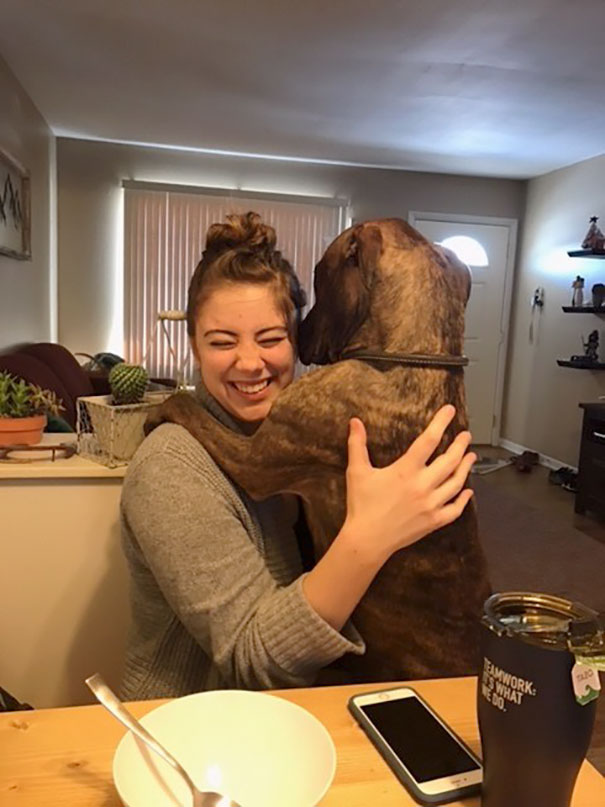
Now, Kylo, the dog with a penchant for hugging, is forever grateful for the loving forever home he’s found. He radiates love and warmth to everyone he encounters. As Meghan puts it, “He has an endearing way of winning people over, quite insistently, by settling into their laps and dozing off peacefully.” Kylo’s unwavering affection is a testament to the transformative power of love and second chances.
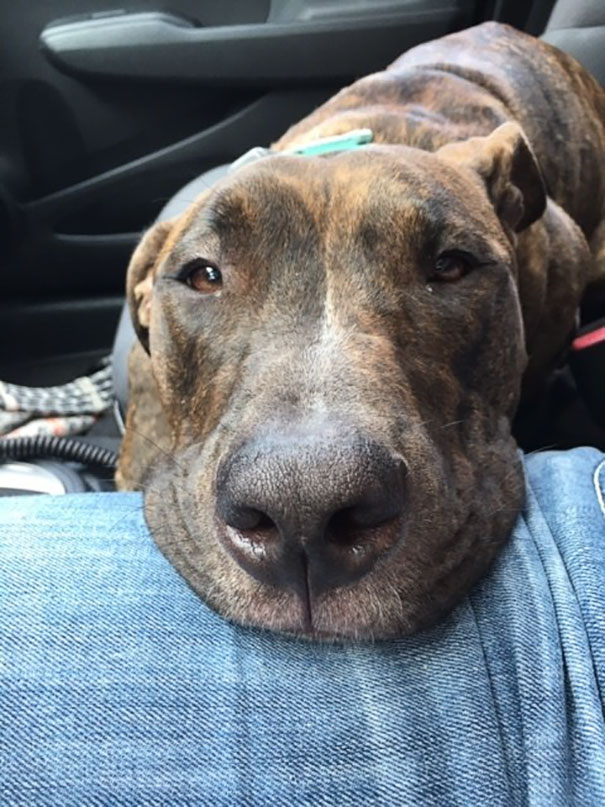
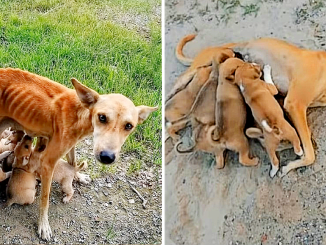
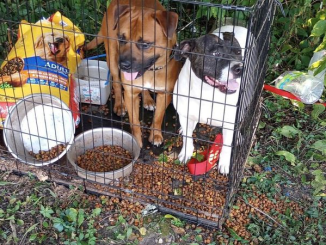

Leave a Reply